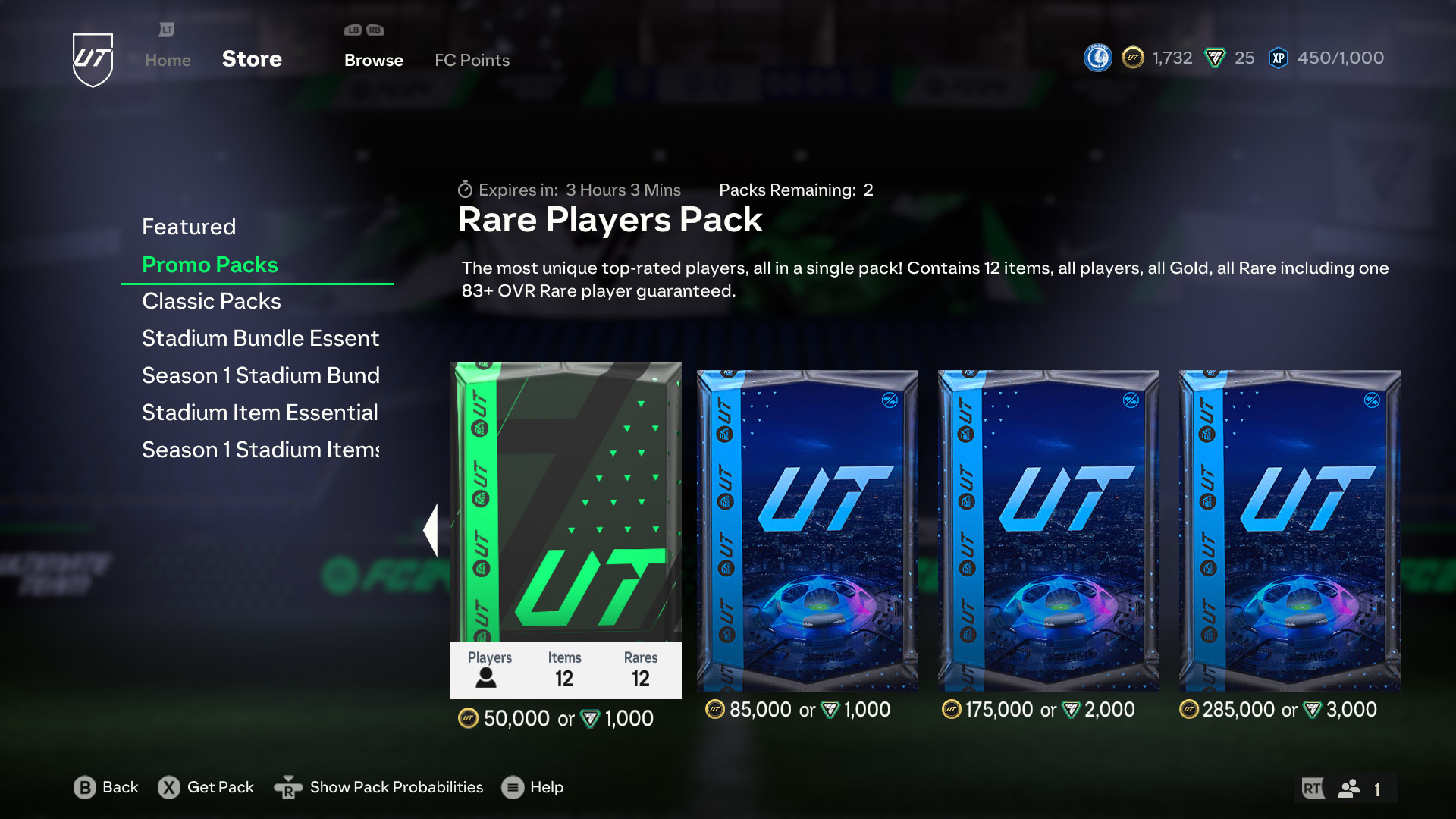The video gaming industry is changing and for the worse. We are witnessing game developers introduce practices that will help them squeeze every bit of profit that they can from a single game. That’s why even titles like our beloved FIFA or now EA FC, give your Packs or Loot Boxes that can be purchased with real money, even though the game initially costs $60.
So, you buy the game, and in order to progress and create a better squad in Ultimate Team, you are required to spend even more money on buying packs that offer a “randomized” outcome.
It couldn’t get any worse. The loot box system in video games has received a lot of backlash over the last couple of years. This model started with the introduction of free-to-play games like Fortnite.

Which is kind of understandable. You get the game for free, and you can play it for free, but there are certain microtransactions and in-game purchases that generate revenue for the company.
But these in-game purchases should never be tied to abilities or things that will give you an in-game advantage. They should be cosmetics and visual-enhancing elements that won’t disrupt the fair play between non-paying users and people who purchase loot boxes.
With EA FC, the situation is quite the opposite. You spent a lot of money on the game, and then, you still have to buy certain packs that will give you an in-game advantage.
Let’s explore how EA FC turned into a virtual casino with their loot box (packs) mechanic.
What Are Loot Boxes, Anyway?
Loot boxes are basically virtual chests that contain random in-game items. Players purchase these packs without knowing what’s inside, and by using real money or in-game currency that must be obtained with real money.
It’s like Kinder Surprise, but instead of a chocolate and toy, you get a mix of valuable and junk items.

This makes the process no different than to play casino online. You don’t know what you are going to get and depends on the random nature of the algorithm.
But online casinos are regulated, and the loot box system in games isn’t. This means that game developers can tweak the system for you to purchase many packs before getting something that is good.
In EA FC’s case, these loot boxes come in the form of packs that give you random players with different stats that you can use in your Ultimate Team.
The $30 Launch Week Fiasco
Imagine paying $30 for a pack in a game you just bought. EA FC 24 pulled this stunt right at launch, causing an uproar among players who felt they were being squeezed for every cent.

This wasn’t just any pack; it was a loot box, offering random items that might (or might not) enhance gameplay.
The Economics of Loot Boxes
Why do game companies love loot boxes? Simple: money.
In 2021, loot boxes brought in a staggering $1.6 billion for EA’s FIFA series alone. Globally, the loot box market is projected to reach $50 billion by 2022.
A small fraction of players, known as “whales,” contribute the lion’s share of this revenue, often spending exorbitant amounts to chase the thrill of rare items .

Gambling or Just Good Fun?
The big debate: are loot boxes a form of gambling? Critics argue that the random nature of loot boxes, coupled with the potential for spending large sums of money, mirrors the mechanics of gambling. Regulatory bodies around the world are taking note.
Belgium was the first country in the world to ban loot boxes, followed by the Netherlands, citing gambling concerns, while other countries like the UK and US are still mulling over regulations.
Can Loot Boxes Be Regulated?
Efforts to regulate loot boxes have been inconsistent. Some regions have pushed for full bans, while others advocate for age restrictions or mandatory disclosure of odds. In the US, bills introduced to regulate loot boxes haven’t yet passed, but the conversation is far from over.

The Impact on Players
How do loot boxes affect the gaming experience? For most players, loot boxes are a minor annoyance, but for whales, they can become an obsession. Studies show that the excitement of opening loot boxes can mimic the thrill of gambling, leading to excessive spending and addiction for some players.
What’s EA’s Take?
EA maintains that loot boxes are not gambling. They argue that players always receive something in return for their money, even if it’s not the coveted rare item. Despite this, EA has faced multiple lawsuits and investigations, some of which have forced the company to alter its practices in certain regions.

The Future of Loot Boxes
So, what’s next for loot boxes? The gaming industry might see stricter regulations, particularly aimed at protecting young gamers. Possible measures include:
- Age Restrictions: Prohibiting the sale of games with loot boxes to minors.
- Spending Caps: Limiting how much players can spend on loot boxes.
- Odds Disclosure: Requiring companies to reveal the chances of obtaining rare items.
These steps could make loot boxes more transparent and less exploitative, ensuring that games remain fun without turning into virtual casinos.
 FIFA Infinity The Absolute FIFA Site
FIFA Infinity The Absolute FIFA Site




